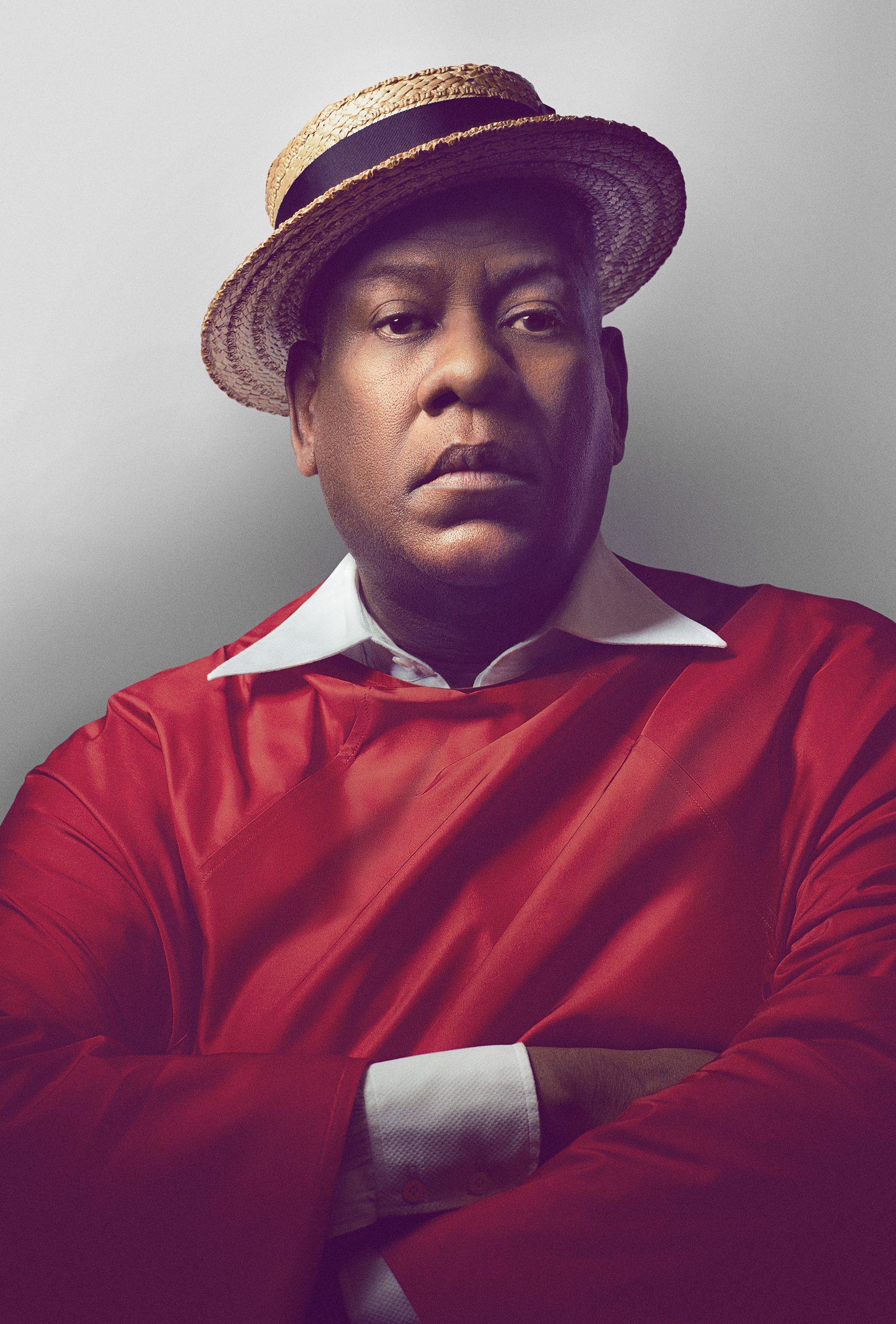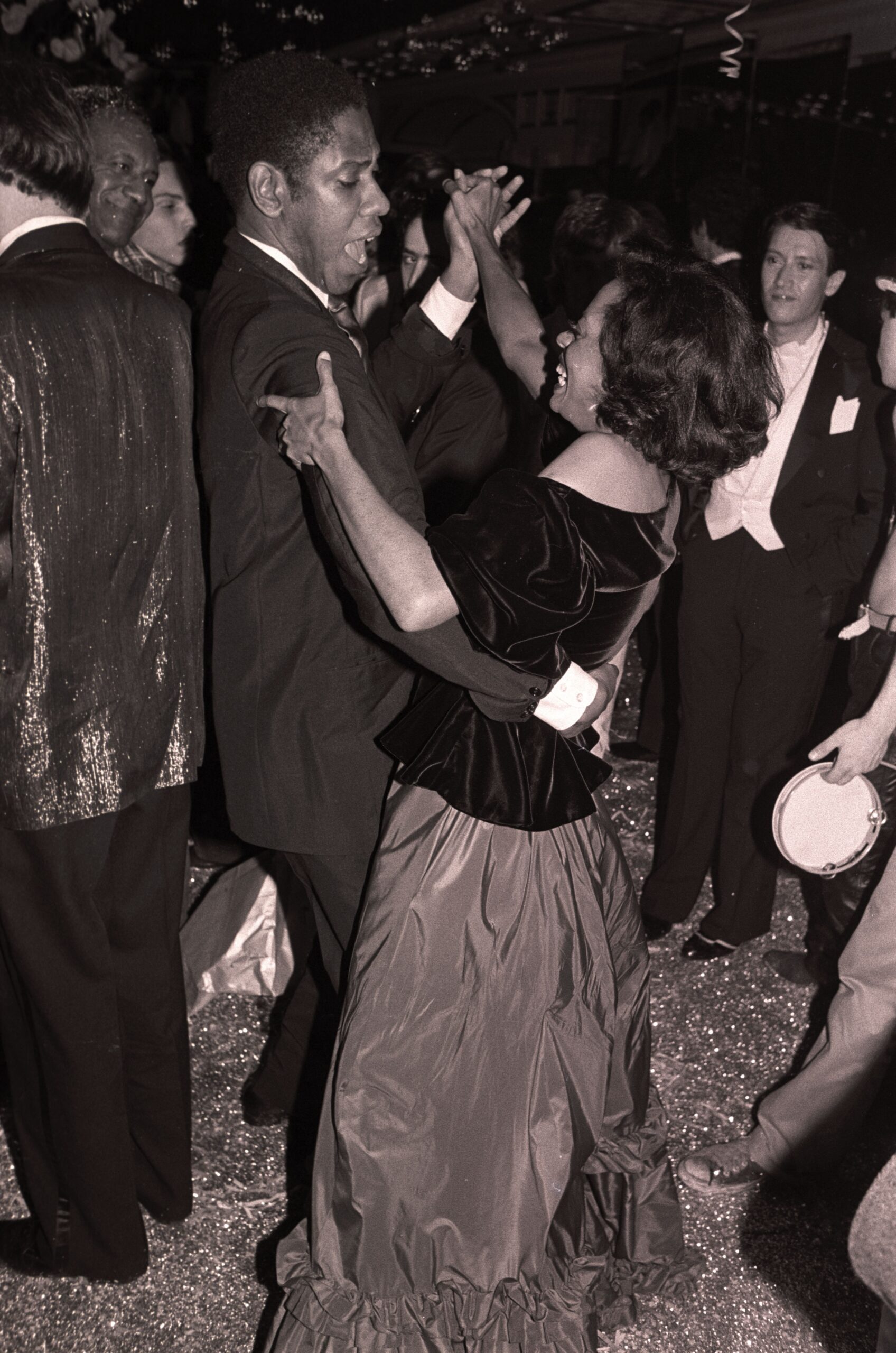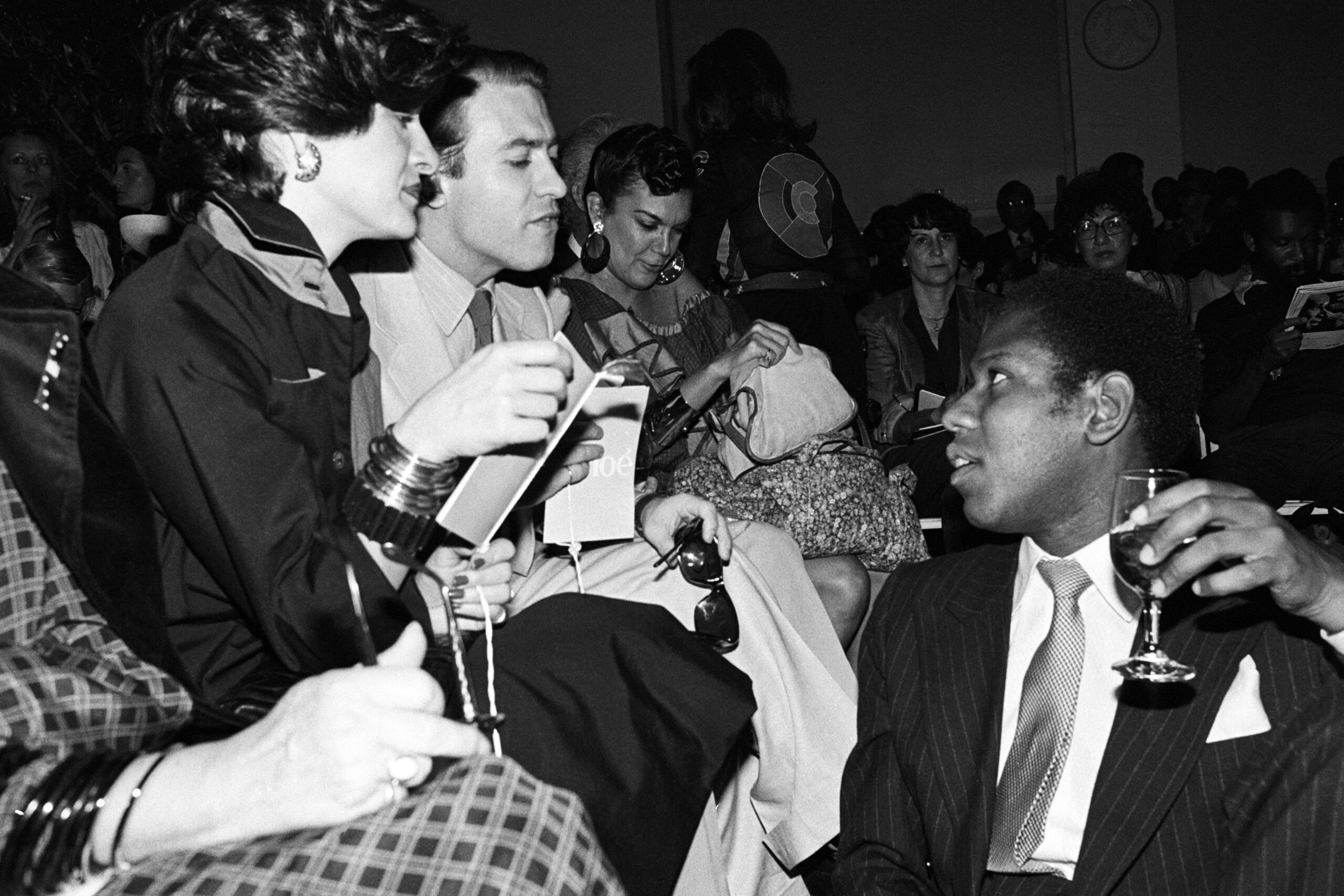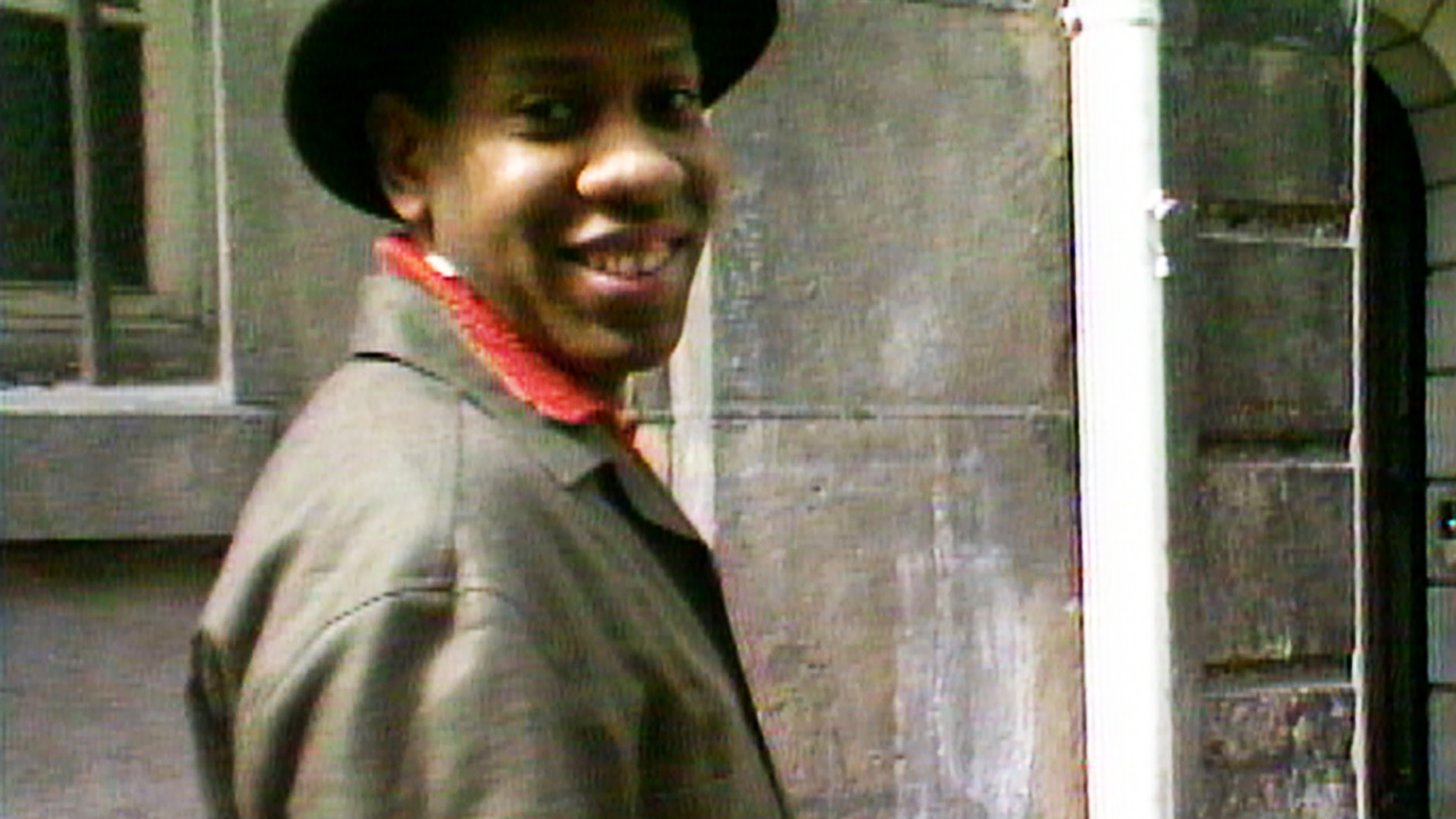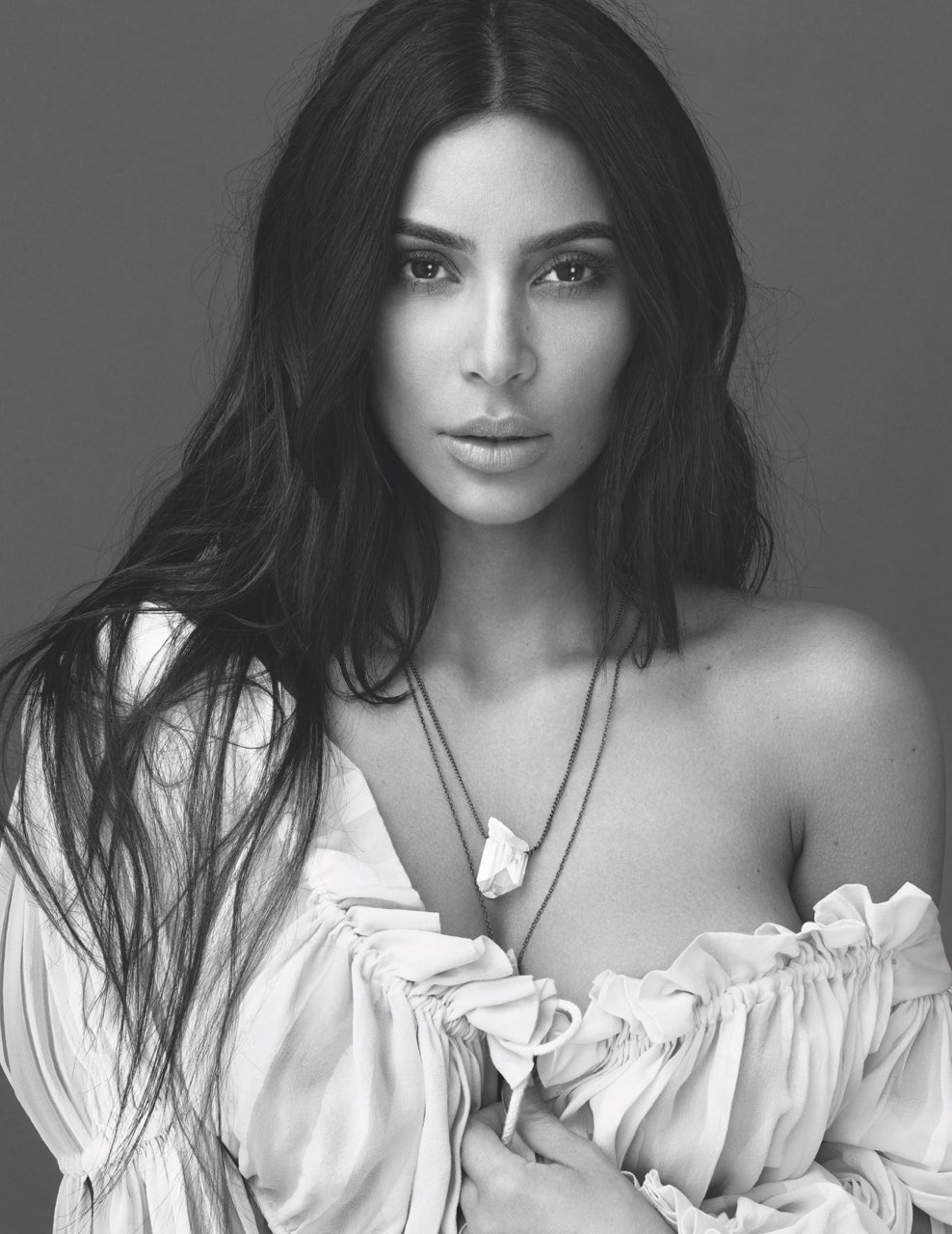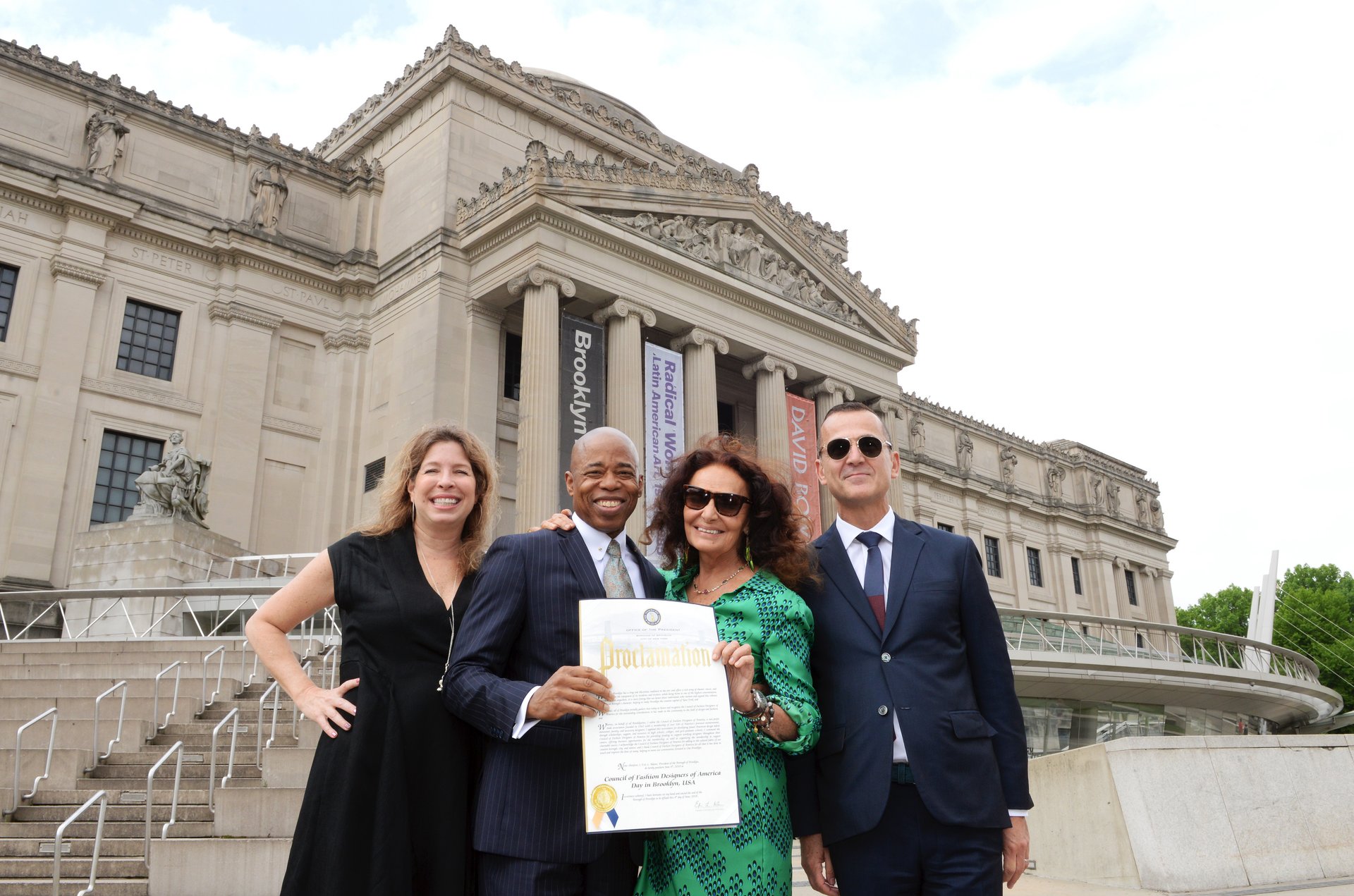In the South, there is a common saying: “Give them the flowers while they live.”
On a recent sunny day on the Upper East Side of Manhattan, André Leon Talley arrived at his usual table in the majestic courtyard of Majorelle. “This feels like we are in Paris, at the Ritz,” he exclaimed, marveling at the elegant interior and stunningly fragrant flower arrangements.
It was a perfect moment.
I admired André through the pages of Vogue magazine, during my childhood growing up in Texas. I would passionately flip, starry eyed, in amazement, through its pages, inhaling the likes of Halston, Yves Saint Laurent, Gianfranco Ferre, Emanuel Ungaro, and Jean Paul Gaultier, to name a few. While all of this was oh-so captivating, the only feature that truly mattered to me was Life with André. It mattered because he looked like me; it mattered because it gave a little, black, southern girl hope that she too could one day achieve the fantasy. To me, Vogue magazine was the holy grail of all things fashion, and in my eyes, André Leon Talley was its luminary!
More than two decades later, I crossed paths with André, who was participating in a conversation at Neiman Marcus in Houston, Texas, where I lived at the time.
Needing to secure my vantage point for direct eye contact, I had the opportunity to ask him, “What skills do I need to make it in fashion?” His response was simply, “You must have an education!” It would be a moment in time that I will never forget.
André Leon Talley’s career is legendary. After graduating from Brown, he worked for Andy Warhol at Interview magazine, which led to meeting Diana Vreeland. That opportunity allowed him to work on groundbreaking exhibitions at New York’s Costume Institute. A job at WWD turned that childhood dream of living in Paris into reality. The rest, including his years at Vogue, is history. The inspiring journey is now documented as part of his living legacy in The Gospel According to André.
My own journey brought me to the CFDA, and as fate would have it, here I sat with André in early May to interview the G.O.A.T. himself: André Leon Talley. How magnifique?
Your documentary was very telling and moving. You brought the viewer all the way in- up close and personal, complete vulnerability. This indeed was your gospel. Are you pleased with the results?
I am very proud of the film. I am very proud that the film is out there at this point in my life. I’ve been in the chiffon trenches for many decades – I invented the words “chiffon trenches” when I wrote my first memoir. Kate Novack, the director, is married to Andrew Rossi, who had done The First Monday in May, and organically, that’s how I knew this was a good fit.
I’m very proud of the message it will convey to future generations. I’m very proud that the film will be in public libraries, in high schools all over this land, and that young people will see it.
I strove for elegance. Kate asked to go upstairs and see my closets, and I said, “My closets are of no interest to anyone. Who wants to see an old bunch of clothes? No, no, no, we’re not doing closets. We’re not going that route. The most important thing is that you must go to North Carolina, where I grew up, and see my family church.” It was founded by my great-great-great grandfather and grandmother, and it is still there. The cornerstone of the church is the family cemetery. I was baptized in a creek in the back of the cemetery, on a September morning, way back then.
Vogue was your escape from reality, such as mine growing up in the south. It was a fantasy on the outside looking in. Did the fantasy continue from the inside looking out?
The two inspirations in my life were Vogue, and Julia Child on PBS in black and white on Sundays, because she had this beautiful French accent which turned me on to French. I grew up with the love I had for my grandmother and my great-grandmother, as well as the teachers in my high school. They were marvelous teachers. These were the people that gave me my inspiration besides Vogue. I did escape through Vogue, because I was the only child in the house. I was not playing football. I was not going to baseball practice. I was tearing out pages of Vogue and putting them on my wall with thumbtacks. Vogue became my reality, and it was a reality that I would have never imagined. I was very happy when I got to Vogue in 1983.
You’ve maintained such a high level of integrity, against all odds, as a black, educated, successful man in this business. Have you had your full circle moment yet?
No. I’m 69 years old. I’ve lived a long time. I’ll come full circle when I have a position that is parallel to the position that Mrs. Vreeland had in her lifetime, as a Special Consultant at the Costume Institute. It doesn’t have to be at a museum, but it has to be something where I will share my knowledge and power, my originality, my wit and my sense of humor. I’m looking for that format. I still have more to do. I am very happy doing the exhibits for the Oscar de la Renta family. I’ve done four: SCAD, Houston, San Francisco, and Charlotte. Charlotte was my masterpiece, and I’m very proud of it!
The 1970s were an extraordinary time in fashion, especially in New York City. What were your most memorable moments?
I was at Studio 54 four nights a week, and I loved dancing with Diana Ross! It was a very electric moment that has never been repeated. Andy Warhol was alive, and he was extraordinary. It was a big melting pot of culture, and you could go to the Factory and see Caroline of Monaco, Grace Jones, Arnold Schwarzenegger, and Jean Michel Basquiat. Warhol was able to mix everybody from every walk of life and that doesn’t happen anymore. It was society mixed with art and art mixed with society. It was so much easier to navigate the waters of high society, of “downtown meets uptown.” Jane Holzer…Barbara Allen… all of the Interview people, Uptown, and Studio 54 was just amazing! Great energy, great friends and great style!
Halston was very much a part of the nucleus back then. He had a central point in the world of the 1970s with Martha Graham and Liza Minnelli. He was also dressing socialites. Everything was just brilliant in the 70s.
In one word, please describe the following for me.
Kehinde Wiley: Very influential and very original and I love the portrait of President Barack Obama. That was a very special moment in his career. I think Kehinde Wiley has created something very unique. But why have you not asked me about Kara Walker? A woman. A black woman. While I do admire Kehinde Wiley, Kara Walker, without question is the most extraordinary, African-American artist, ever living. I love Kara Walker!
Virgil Abloh: Amazing! It’s a breakthrough, a breakaway moment that he’s been appointed [at Louis Vuitton], a historical, defining moment for fashion and history! Same with Edward Enninful, the first African American Editor in Chief of British Vogue. When I found out the news, early one morning at 5 a.m., I emailed to congratulate him, and he said, “You paved the way for me.” He gave me that great compliment. It touched my heart! This is a defining moment with Virgil, and with Edward!
The July 2008 issue of Italian Vogue: The late Franca Sozzani was a true original, and she knew the importance of creating an all-black issue, She did it with such style and such grace. It sold out twice. Another breakaway moment that defined history.
What’s next for André Leon Talley? What legacy would you like to leave behind?
I’m looking for the big job! I regret in my life, that I never took time to learn how to navigate my persona into a lucrative and sustainable security. So I’m looking for the thing that gave Diana Vreeland security in her life.
Did you ever think the impact you had on culture would touch the lives of so many black influencers wanting to be a part of such a privileged industry?
I never thought I would have this kind of impact that resonates with people. I always wanted to be someone who was very influential. I wanted to be successful. I did my homework. I never imagined it to this degree. I saw the lines around the block at the Tribeca Film Festival. There were people from all walks of life: short, tall, black, white, thin, transgender, little old ladies standing in line with pink coats and pearls to see that film. That really, really touched my heart. I am very proud and I am very humbled. I don’t take anything for granted in my life. I’m very humble and grateful to God. I feel that I’m blessed, and I have angels watching over me…My Grandmother, Diana Vreeland, and Andy Warhol.
